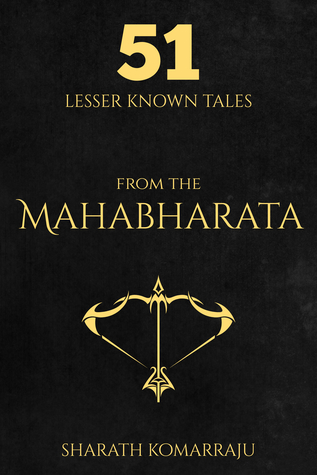More on this book
Community
Kindle Notes & Highlights
Read between
July 15 - July 18, 2019
The earliest epics of all ancient civilizations are oral, from the Iliad of Homer, the epic of Gilgamesh that the ancient Sumerians loved, to the Maxims of Ptahhotep of the Egyptians in the early Bronze Age.
The storyteller must tell the tale without any conscious bending of the facts, and the only way to do that is to trust his subconscious mind and let the words flow. And part of the scribe’s job is to write down the content of the story without losing its coherence and theme as a whole. For this, the scribe must understand what he is writing.
The determinism that we feel in our lives – that our actions have consequences that will shape the future – is but an illusion for them. Whatever they do, the future cannot be changed, so they adopt an air of resignation and become mute observers instead.
Jaya and Vijaya became Hiranyakashyapu and Hiranyaksha in one life, Ravana and Kumbhakarna in the second, and Sisupala and Dantavakra in the third.
the word ‘vijaya’ signifies victory over external events, while the word ‘jaya’ means victory over self. Vijaya implies a victor and a loser, whereas Jaya implies victory for all.
Barbarik’s power came from three divine arrows. When he shot the first arrow, it marked all the objects that ought to be destroyed. The second arrow marked all the objects that ought to be kept safe. The third arrow destroyed all the objects marked by the first and spared all the objects marked by the second.
he's called 'the one who belongs to everyone and yet is attainable by no one'.
do not attach yourself to results and emotions. Perform your duty. Accept the consequences, whatever they may be.
‘Craving for sense pleasures is not removed but aggravated by indulgence, even as ghee poured into fire strengthens it. One who aspires for peace and happiness should instantly renounce craving and seek pleasures of the mind, which neither grow old nor cease as the body ages.’
In life, all of us become unwitting Fausts, assuming that the good things that come our way do so because we deserve them, and when they are taken away – as they always are – we ask why in desperation. We cling to hollow symbols of identity, which help in holding up the edifice of lies we have built for ourselves.
And when our chariots burn and our bows are snatched away, we rant and rage. We ask what we had done to deserve our misfortunes. We wonder why everything is being taken away, forgetting, that it had all been given to us on loan, and that every loan has to be repaid.
‘Death is the universal truth of life. Day after day countless beings die. But living things live as though they will live forever. What can be more wondrous than this?’


